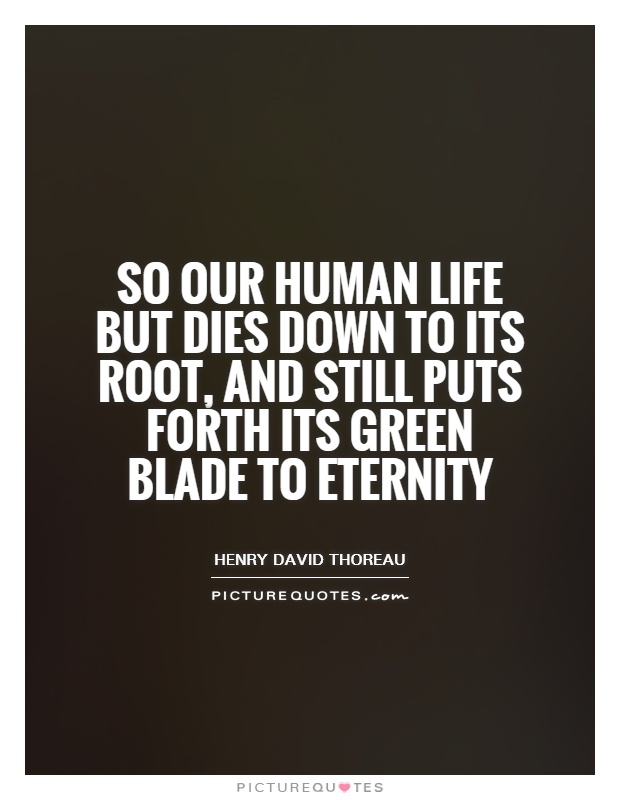So our human life but dies down to its root, and still puts forth its green blade to eternity

So our human life but dies down to its root, and still puts forth its green blade to eternity
Henry David Thoreau, a renowned American philosopher, poet, and naturalist, often explored the themes of nature, simplicity, and the interconnectedness of all living beings in his works. One of his most famous quotes, "So our human life but dies down to its root, and still puts forth its green blade to eternity," encapsulates his belief in the cyclical nature of life and the eternal renewal of the human spirit.Thoreau believed that human life, like a plant, may wither and die on the surface, but its essence, its root, remains alive and connected to the eternal cycle of nature. Just as a plant may appear to die in the winter, only to sprout new growth in the spring, so too does the human spirit continue to evolve and renew itself in the face of adversity and change.
Thoreau's words remind us that even in the face of death and decay, there is always the potential for new life and growth. He saw the interconnectedness of all living beings and believed that our lives are intertwined with the natural world around us. Just as a plant draws nourishment from the soil and sunlight, so too do we draw inspiration and sustenance from the world around us.
Thoreau's philosophy of transcendentalism emphasized the importance of self-reliance, individualism, and the pursuit of truth and beauty in nature. He believed that by connecting with the natural world, we could tap into a deeper understanding of ourselves and our place in the universe.












 Friendship Quotes
Friendship Quotes Love Quotes
Love Quotes Life Quotes
Life Quotes Funny Quotes
Funny Quotes Motivational Quotes
Motivational Quotes Inspirational Quotes
Inspirational Quotes